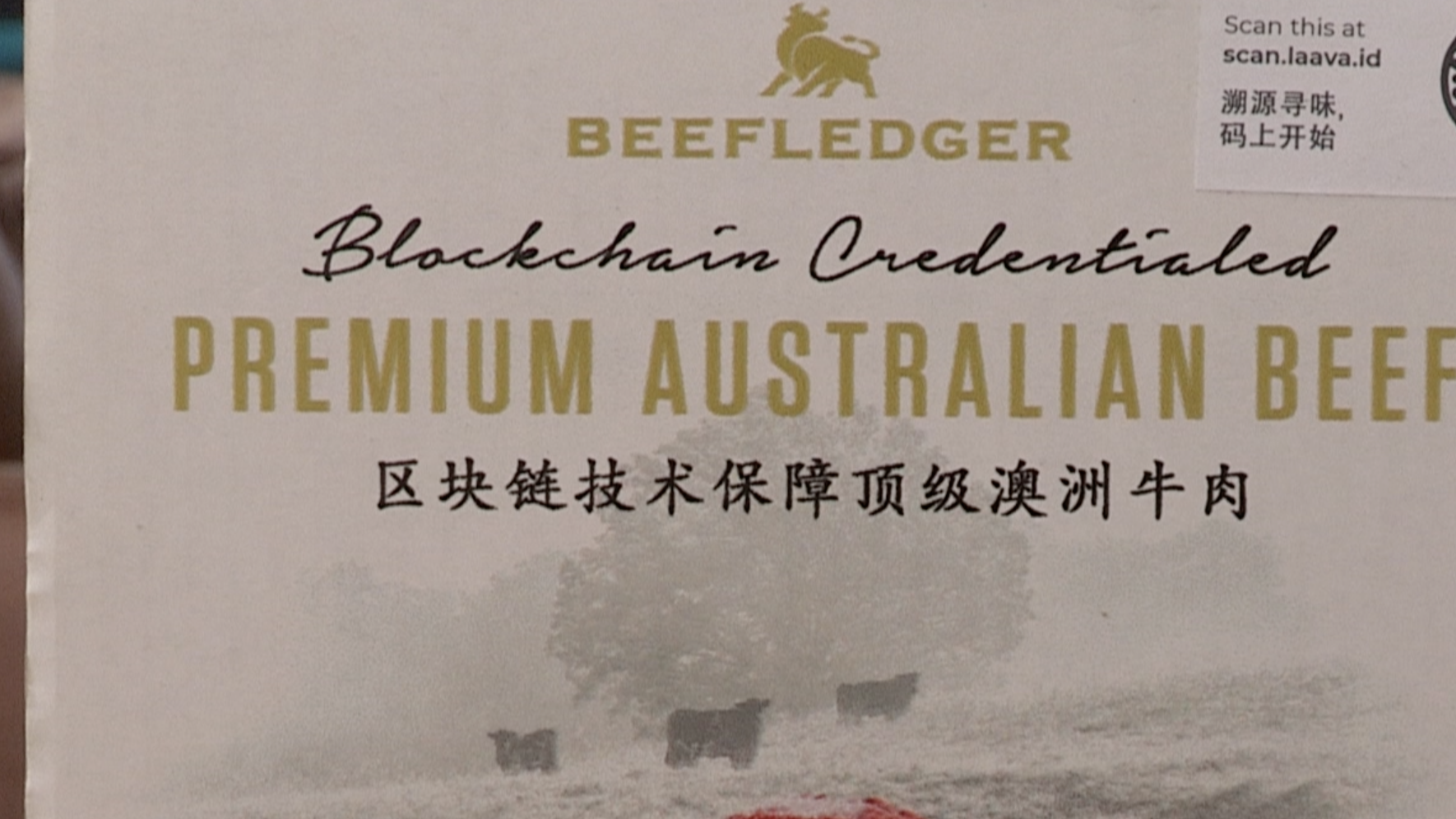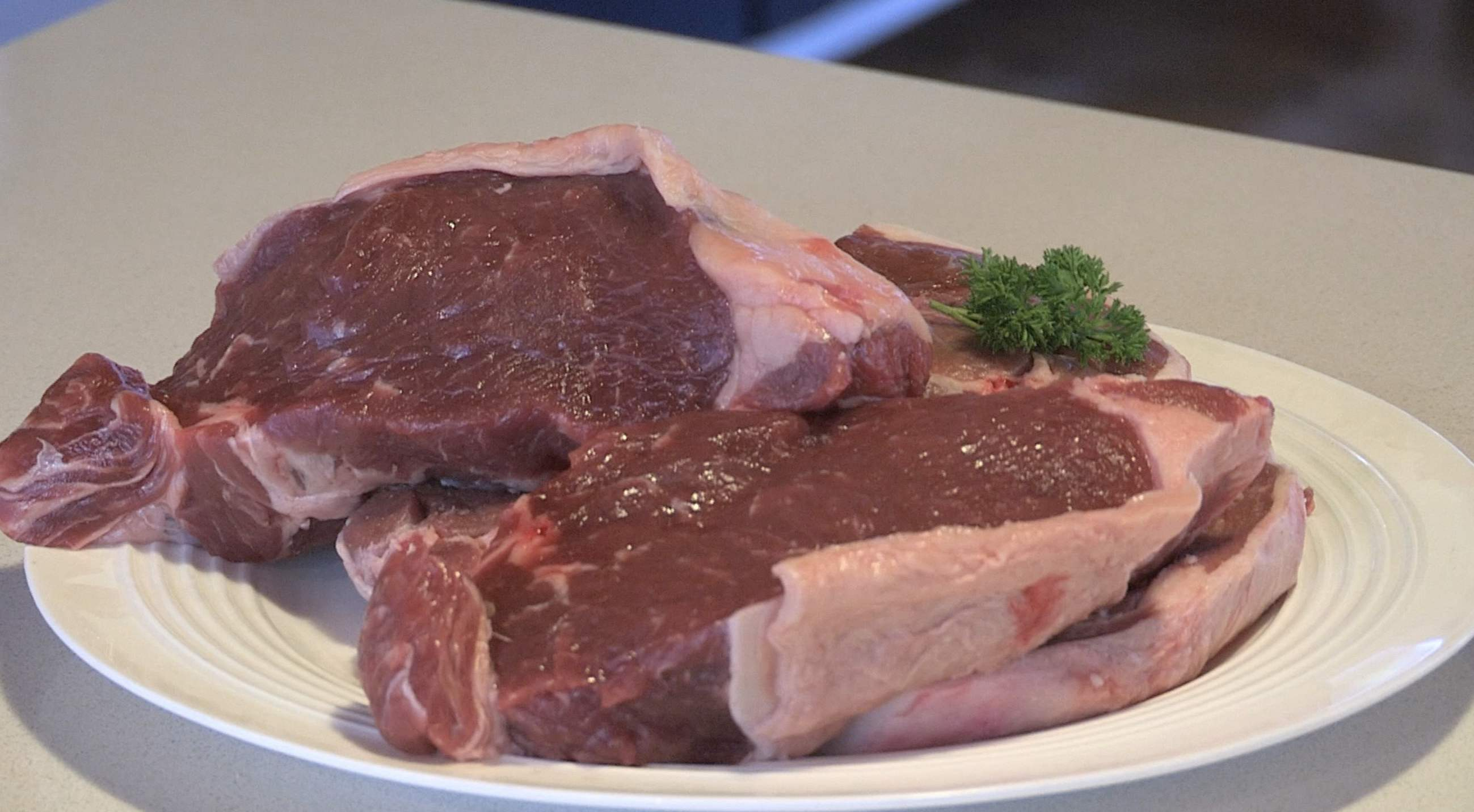Australian beef is proving to be increasingly popular in China, especially among health conscious consumers. Unfortunately, that demand is driving a thriving counterfeit trade. Sales of fake Australian branded beef are reportedly worth billions of dollars.
Experts estimate at least half of the beef sold in China as Australian beef is not what it claims to be.
"Talking to colleagues in China, they expressed a view to me that probably 30 percent of meat sold in China is what it claims to be, 30 percent is not from the country it claims to be, 30 percent is not the cut of meat that it claims to be because, as you know, some meat cuts are more expensive than others, and 30 percent is not necessarily 100 percent beef," said BeefLedger chairman and founder Warwick Powell.
Powell's company has created a system using blockchain technology to provide consumers in China with verifiable information about the Australian beef products they are buying.

Australian-based BeefLedger uses blockchain to allow Chinese consumers to verify the source of their beef. /CGTN Photo
Australian-based BeefLedger uses blockchain to allow Chinese consumers to verify the source of their beef. /CGTN Photo
"Probably the biggest difference with the traditional ways that data is presented or information is presented is that blockchains require a number of parties coming together to verify that a particular piece of information is accurate. So it is not possible for one party within any environment to simply make the claim and have everyone else depend upon it," said Powell.
"I am making a claim about where my beef is from, for that to actually go into the blockchain as a piece of information that everyone else can use it actually requires other people within the blockchain ecosystem to validate that my claim is actually accurate. So what we do is firstly, build the underlying technological architecture that enables multiple parties in a supply chain to come together and build that consensus around the information claims. The second thing that we do is to make sure that information is accessible to the parties in that supply chain; whether it is a wholesale importer, whether it is a regulator, whether it is customs wanting to verify what it is that is coming through border gates."

Australian beef. /CGTN Photo
Australian beef. /CGTN Photo
Consumers can scan a code with their phones to learn more about the beef they're purchasing including where the animal came from and what it ate.
When it comes to combating hi-tech fraudsters, some experts believe no system is impenetrable, especially ones that rely on human involvement.
"Systems themselves are designed by human beings and there will always be other human beings who will be looking for vulnerabilities so information system integrity is a bit of a cat and mouse game continually," said Powell.